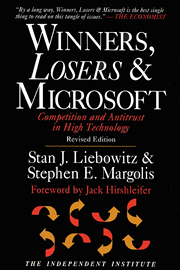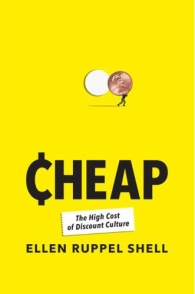That’s the topic for the Spring Reading Group, featuring Liebowitz and Margolis’ Winners, Losers, and Microsoft: Competition and Antitrust in High Technology. For those of you who plowed through the book in IO, I am compiling an auxiliary set of readings to complement (and update) the Liebowitz and Margolis book.
We will meet Thursdays from 11:10 to 12:15 in Briggs 217. The sign-up sheets are posted on the board outside of Professor Gerard and Professor Galambos’ office.



 The Economics Department
The Economics Department 
